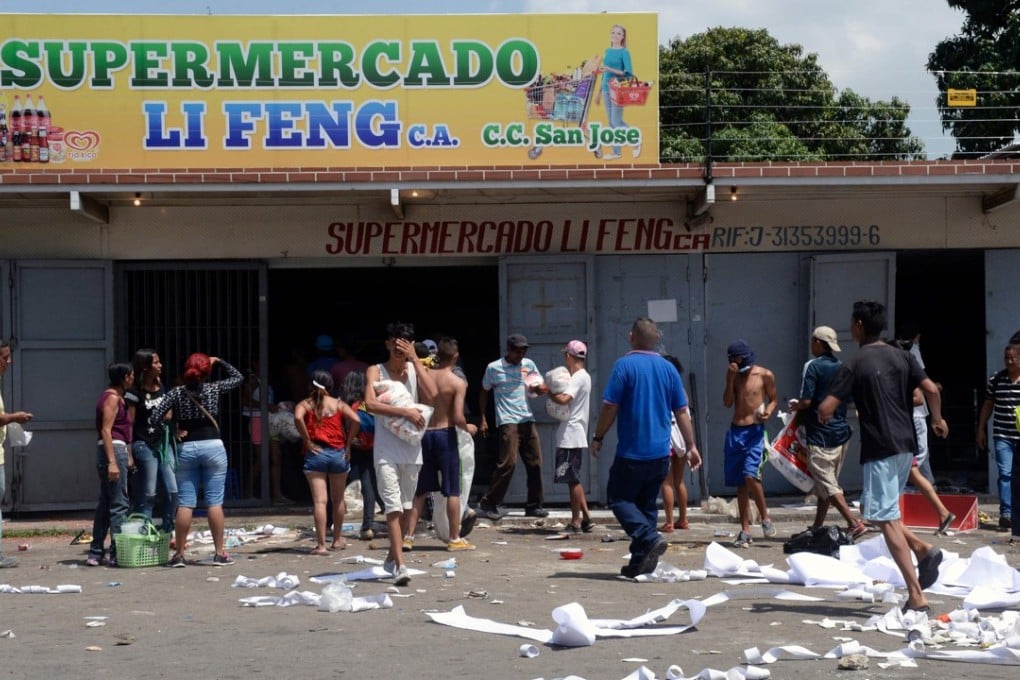As Venezuela implodes, so do the dreams of thousands of fleeing Chinese
Tens of thousands have returned to China following implosion of economy and descent into violence

As formerly oil-rich Venezuela descends further into chaos, the dreams of one of South America’s largest Chinese communities can be counted as collateral damage, along with one of Beijing’s most high-profile efforts at economic diplomacy.
There used to be 400,000 ethnic Chinese living in Venezuela, which sits atop the world’s biggest oil reserves, but tens of thousands have returned to China in the past three years as its economy has imploded and violent protests have taken over the streets.
Mey Hou, a mother of three from Enping, in Guangdong province, fled Venezuela with her children in December 2015, bringing down the curtain on 15 years of hope for a better life overseas.
Her husband and one of her brothers returned to China last year, but another brother decided to remain in Venezuela.
Chavez’s anti-US rhetoric was once music to Beijing’s ears, and Venezuela’s rich oil reserves were a potent lure for energy-hungry China, but the country now serves as a reminder to Chinese individuals, businesses and officials of the perils of venturing abroad.
As a deep-pocketed Beijing ramps up efforts to gain global influence through its infrastructure expertise, the lessons from Venezuela could resonate for some time to come.